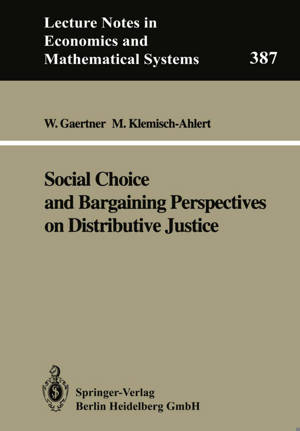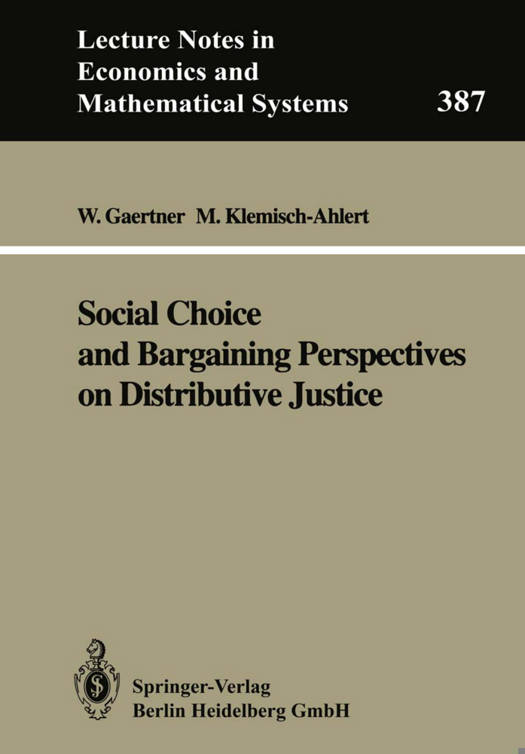
Door een staking bij bpost kan je online bestelling op dit moment iets langer onderweg zijn dan voorzien. Dringend iets nodig? Onze winkels ontvangen jou met open armen!
- Afhalen na 1 uur in een winkel met voorraad
- Gratis thuislevering in België vanaf € 30
- Ruim aanbod met 7 miljoen producten
Door een staking bij bpost kan je online bestelling op dit moment iets langer onderweg zijn dan voorzien. Dringend iets nodig? Onze winkels ontvangen jou met open armen!
- Afhalen na 1 uur in een winkel met voorraad
- Gratis thuislevering in België vanaf € 30
- Ruim aanbod met 7 miljoen producten
Zoeken
Social Choice and Bargaining Perspectives on Distributive Justice
Wulf Gaertner, Marlies Klemisch-Ahlert
€ 52,95
+ 105 punten
Omschrijving
It is probably fair to say that there does not exist a unique and generally accepted not ion of justice. Even if one confines oneself to economic justice one can still get many answers to the question of how justice - henceforth we shall use the term "distributive justice" - should be defined and characterized. This may be disappointing for the outside observer but one can also view this as achallenge, at least as long as one thinks that distributive justice is an issue economics should be concerned with. Many problems of distributive justice can be described as follows: There is a fixed collection of well-defined objects (usually commodi- ties) which are quantitatively measurable and perfectly divisible. This collection is to be divided up among a certain number of individuals, the members of society, let 's say. According to which principles or rules should this distribution be carried out? Should people be rewarded according to their ability or according to their needs? Should the distribution be such that nobody envies the bundle of any other member of society? Should the collection of entities be distributed in a way that yields the greatest benefi.
Specificaties
Betrokkenen
- Auteur(s):
- Uitgeverij:
Inhoud
- Aantal bladzijden:
- 136
- Taal:
- Engels
- Reeks:
- Reeksnummer:
- nr. 387
Eigenschappen
- Productcode (EAN):
- 9783540558156
- Verschijningsdatum:
- 12/10/1992
- Uitvoering:
- Paperback
- Formaat:
- Trade paperback (VS)
- Afmetingen:
- 170 mm x 244 mm
- Gewicht:
- 244 g

Alleen bij Standaard Boekhandel
+ 105 punten op je klantenkaart van Standaard Boekhandel
Beoordelingen
We publiceren alleen reviews die voldoen aan de voorwaarden voor reviews. Bekijk onze voorwaarden voor reviews.











